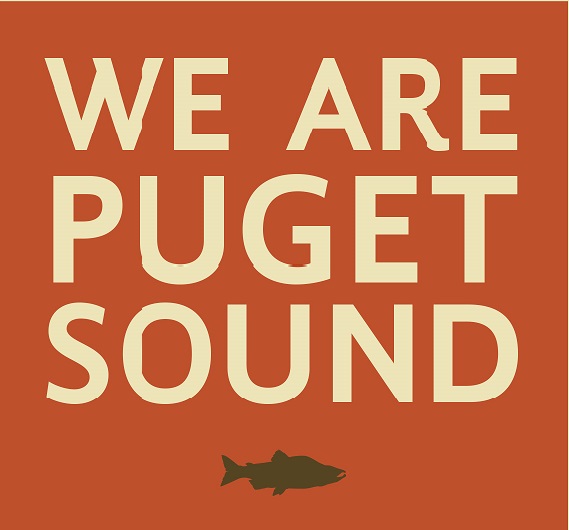EAT LOCAL & COMMUNITY CARE
Spring has sprung and so has the growing season at local farms -- all in the continuing crisis of the unprecedented COVID-19 outbreak. It will take all our collective action and community care to support our local farming and fishing economies that support healthy food access for all. We must work together to tackle this pandemic just as we work side by side to address the climate change crisis and restore Puget Sound. Just as the climate impacts the most vulnerable among us, so does the viral pandemic that only exacerbates the systemic inequalities like food security for people during the COVID-19 outbreak. The current pandemic is impacting consumers ability to access food and producers ability to provide. Let’s support our regional farmers and fishers who grow and harvest food in ways that do not negatively affect our shared waters, strengthen local economies, improve food security, and supply our community food co-ops. Here are some resources for you to eat local and participate in community care:
Statewide
King County
Pierce County
Whatcom, Skagit, Island and San Juan County
HOLD YOUR ELECTED OFFICIALS ACCOUNTABLE
With 2021 legislative session happening virtually, democracy is more accessible than ever. Now is the critical moment to engage with your elected officials through meetings, social media, phone calls, and emails. Ask them to support legislation and budget priorities that value our region’s natural resources and the communities that depend on them. Thank them when they safeguard clean water, support sustainable farms and forests, uphold tribal treaty obligations, uplift and strengthen communities of color, build strong and durable rural economies, increase urban tree canopy, reduce carbon pollution, and protect wildlife. Remind elected officials that clean water is good for the economy and that restoring Puget Sound creates jobs.
We also know it can seem overwhelming to engage in the legislative process when it feels like things change so quickly — bills introduced or amdended, a vote happening in a committee, and your legislator's availability — on a minute-by-minute basis. It can feel discouraging in the chaos of it all, which is why we're so excited to launch a bill tracker serves as a tool for anyone to use to make sense of environmental work happening this session.
Check out this useful guide on how to get started using the bill tracker, then dive right in!
UNDERSTAND AND SUPPORT TRIBAL TREATY RIGHTS
When Northwest Tribes signed the 1854 and 1855 treaties with the US government, tribes reserved the right to fish and shellfish at all Usual and Accustomed Areas. These treaties represent powerful protections for salmon and for people - more habitat and more salmon mean more salmon for everyone.
As inhabitants of the Salish Sea, it is our responsibility to learn and understand about human connections with salmon and why actively supporting Tribal Treaty Rights is so important.
Here are some actions and resources for Native American Heritage month:
Understand Tribal Treaty Rights, then talk to friends and family about why everyone who lives in Washington is a party to the treaties.
Visit Hibulb Cultural Center & Natural History Preserve and listen to the words of Tribal members.
Support SalmonDefense, established by the twenty Western Washington Treaty Tribes in 2003 to provide an independent nonprofit entity focused solely on the welfare of our region’s salmon and their habitat.
TAKE THE PLEDGE for the Salish Sea—here are five things you can do.
Print out this pledge, featuring five things you can do for the Salish Sea, and pin it on your fridge! Some of the featured activities include voting, empowering young people, and reducing your impacts at home.
Once you take the pledge for the Salish Sea, you can encourage your friends to do the same with these graphics for social media. Download the images directly or share from these links:
REDUCING YOUR OWN IMPACT
Toxic stormwater runoff is the state’s largest source of water pollution. To clean up our waterways, we need a new approach that relies on green infrastructure and innovative techniques to reduce pollution, improve drainage, and filter toxic runoff from roads and rooftops.
Rain gardens, the most common form of green infrastructure, are bowl-shaped gardens designed to capture and filter polluted stormwater runoff. They also provide habitat and food for beneficial insects and animals! Green infrastructure helps reduce toxic pollution from entering our waterways and protects our communities, salmon, and orcas. Rain gardens can be found throughout your neighborhood, even if you never realized it before.
Installing rain gardens that treat polluted runoff is key to a healthy Puget Sound and cleaner water for all. And they are great ways for everyone to do your part for orcas and salmon, and your own neighborhood! The benefits of rain gardens extend far beyond your own home and provide cleaner water for your entire community. If installing a rain garden isn’t an option, explore rain gardens in your neighborhood or check out our interactive resources to teach your family about their benefits:
Puget Sound Partnership blog post that connects Earth Day, rain gardens, and orcas: https://medium.com/puget-sound-partnership/earth-day-rain-gardens-and-orcas-776ec5fc593f
Rain gardens in general information
Want to visit a rain garden near you? Find a rain garden in your neighborhood: http://www.soundimpacts.org/
Interested in building your own rain garden? Great online book available that walks you through the process: Rain Garden Handbook for Western Washington and Rain Gardens for the Pacific Northwest by Zsofia Pasztor;
General rain garden resources: https://www.12000rain gardens.org/
More resources from WSU including local contact information: https://extension.wsu.edu/rain garden/homeowner-resources/
King County
Rainwise Program rebate opportunities: https://www.700milliongallons.org/rainwise/
Mini grants to support green infrastructure projects: https://www.12000rain gardens.org/gsi-mini-grants/
ECOSS - multilingual staff that supports green infrastructure projects: https://ecoss.org/projects/rainwise-residential/
Resources for Kids:
Games, activity books, and more!: https://www.onlyraindownthedrain.com/kids/
Arlo’s Polluted Puddles, Video: https://www.youtube.com/watch?v=ysu1qYSAsBU
Ryan’s World, How to Filter Water, Video: https://www.youtube.com/watch?v=6Z3JBH-Hg8w





